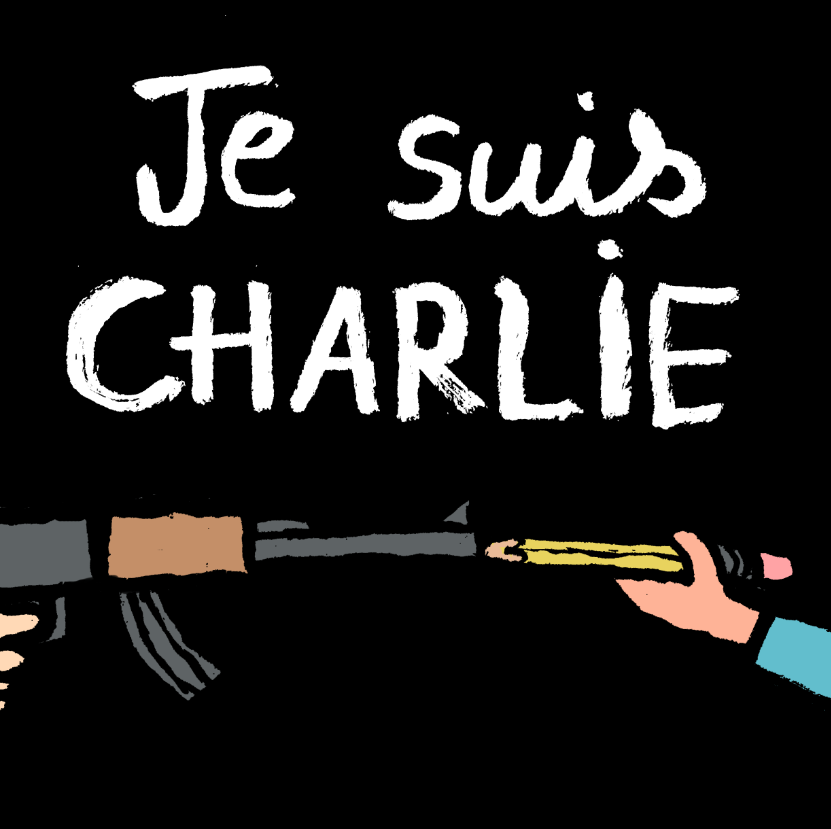

Miles Salter
The director of York Literature Festival says we must unite in defence of free speech
The killings at the satirical magazine Charlie Hebdo in Paris on Wednesday (January 7) have sent shockwaves through Europe.
A small group of hardline Islamists regarded the work of a group of cartoonists so insulting, so appalling, that they were willing to kill over it.
The inference is disturbing: show any sort of denouncement of Muhammad and – potentially – you are a dead man.
The revulsion that has greeted the killings is appropriate, and the 35,000 people who took to Republique Square on Wednesday night shows a strong and dignified stance against what has taken place.
On social media, #JeSuisCharlie has been the phrase of the last 24 hours as people have rallied in support of Charlie Hebdo. The photograph of dozens of journalists in the AFP news room in Paris was moving for all the right reasons.
We’re with you, the image said, and we won’t shut up.
What price freedom of speech now? Should we carry on as we were, or cower in semi-silence, afraid to say anything that might upset Islamists?
A couple of nights ago, I watched Russell Howard’s Good News. In one sketch, he poked fun at vicars who are enrolling on a comedy course, then dressed as Jesus doing a stand up routine.
“If he did that to Muslims,” my other half said, “he’d be in big trouble.”
Some of the cartoons drawn in response to the atrocity. Click to see a bigger image
Somebody commented on Facebook commented that journalists would be affected by what has happened. One of my friends wrote: “Sadly, you’ll see people, newspapers, governments and news programmes responding by pandering to such threats. One guy on the BBC almost whispered the words Islam and Jihadists as though he would be shot for linking the terms to what happened today!”
I can’t imagine satirists in the UK, like Private Eye’s Ian Hislop, will be feeling too good today.
If you think you’re going to be shot by a man in black for satirising extreme Islam, you may well think twice. As the satirical website The Onion said, with its tongue half in its cheek: “It’s impossible to say with absolute certainty that this 500-word article will not make those involved in its writing — and potentially even those not involved — the targets of brutal and unconscionable violence.”
Free speech is hard won
The Paris atrocity reminds us how hard won free speech is. We take it for granted, like clean water and electricity. We say what we like, when we like.
Twitter is full of frank opinions, often negative, and not always pleasant. But at least people have the option to express what they want to.
 In other countries, the chance to say what you think is severely curtailed. Organisations like Amnesty International and English PEN defend writers and journalists whose words get them into trouble, because they speak the truth and unmask dodgy regimes or tyrants.
In other countries, the chance to say what you think is severely curtailed. Organisations like Amnesty International and English PEN defend writers and journalists whose words get them into trouble, because they speak the truth and unmask dodgy regimes or tyrants.
The pen, though, remains one of our most potent weapons in the battle against ignorance and intimidation. What’s striking about the images that have come out in the last 24 hours is how many feature pencils or pens.
The pen, linked to a little imagination and intelligence, battles vicious and violent forces with a dexterity that the bullet will never match.
This machine kills fascists, a slogan that Woody Guthrie once had emblazoned on his guitar, yesterday was placed on an image of a pencil.
The people who were killed yesterday should still be alive, but they’d be proud to see how their stance has ignited a wave of resilience to murderous intimidation. Like them, I’ll choose the pen over the gun.
